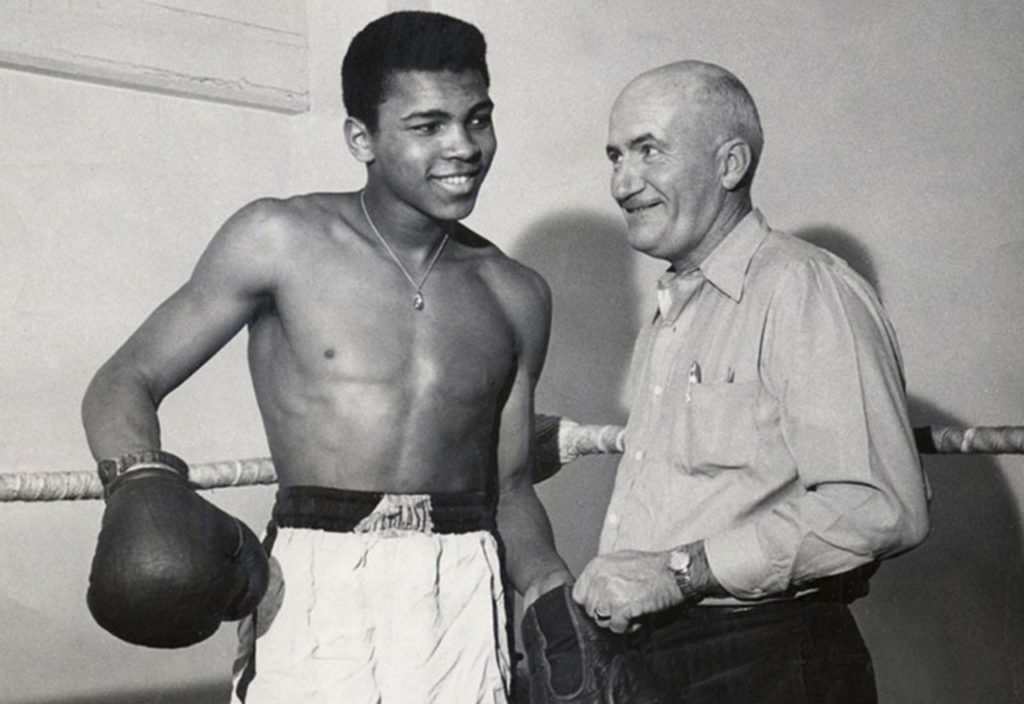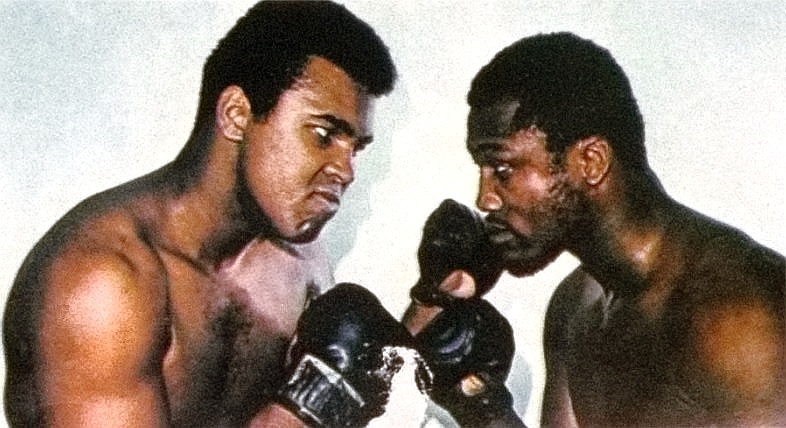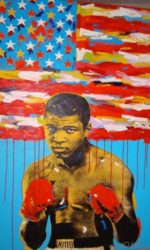Muhammad Ali was a professional boxer and activist. He is most famous for being one of the most popular American boxers. Ali was not just a professional boxer but also a philanthropist, entertainer, and activist; and later received the nickname “The Greatest.”
25 Facts
- Cassius Marcellus Clay Jr. (Muhammad Ali ) was born on January 17, 1942, in Louisville, Kentucky. He and his dad were named after a fervent abolitionist who graduated from Yale in 1832.
- His father, Cassius Marcellus Clay Sr., painted billboards, and his mother, Odessa Grady Clay, worked as a domestic maid. Cassius Senior was a Methodist; his wife raised Cassius Jr. and his younger brother, Rudolph Clay, as Baptists. Abe Grady, his great-grandfather, was an Irishman who immigrated to America in the 1860s.
- When Cassius was 12, he owned a shiny $60 bicycle. He rode the bike to a fair in downtown Louisville, Kentucky.

When the show was over, the bike was gone. Cassius was in tears. He reported the stolen bike to a police officer, “If I find the kid who stole my bike,” he said, “I’ll whup him.”
The officer, Joe Martin, turned out to be a boxing coach. He told young Ali that if he wanted to fight whoever stole his bike, he better learn how to fight. He then started visiting the gym and picked up the basics of boxing. Cassius never did get his bike back. But six weeks later, he got in the ring with another twelve-year-old white boy and beat him.
4. Cassius Clay had dyslexia and attended Louisville’s Central High School. He struggled greatly for the remainder of his life with reading and writing.
5. A store clerk in Lousiville turned Ali down for a drink of water due to his skin tone.
6. By age 18, Clay had 100 victories against eight defeats, two national Amateur Athletic Union titles, two national Golden Glove awards, and more.
7. After High School, Ali competed in the Rome Olympics and won a gold medal in the 81kg weight division.
8. Muhammad Ali, still known as Clay then, competed for the United States and won gold in the light heavyweight event in the 1960 Olympics in Rome.
9. Ali embraced Islam and converted to it in 1961. He was with Malcolm X when he announced that his surname had changed. Clay first went by Cassius X when he joined the Nation of Islam in 1964. Later on, he would change it to Muhammad Ali. He converted to traditional Islam in the 1970s.
Ali never officially changed his name, which is an amusing anecdote. When USA Today looked into Ali’s birth certificate in 2016, they discovered that no name changes were made to the record.
10. Ali refused to shake hands with Malcolm X. Ali last saw Malcolm X when he was still alive during their time in Ghana.
11. When Malcolm X was killed, Ali felt betrayed because they were at their most vulnerable.
12. Ali officially changed his name from Cassius Marcellus Clay Jr. to Muhammad Ali on March 6, 1964. Elijah Muhammad chose the name Muhammad as his first name. His last name comes from a prophet’s cousin.
13. His first significant triumph over Sonny Liston in 1964 earned him his first world championship. Ali was crowned the WBA and WBC World Heavyweight Champion by a technical knockout victory.
14. Ali liked to trash-talk his opponents before a fight.
15. Muhammad Ali fought with Sonny Liston before being qualified because he kept talking about it, which got him the nickname “Louisville Lip.”
16. Muhammad Ali became well-known and wealthy due to their fight against Sonny Liston. Ali received $630,000 for the victory and $836,000 more than five decades later from the sale of the gloves.
17. He threw his gold medal into the Ohio River out of rage when a restaurant turned him away because of his race.
18. In his lifetime, Muhammad Ali was married four times. His first spouse was Sonji Roi (1964 to 1966). Belinda Boyd was his second wife (1967 to 1977). Veronica Porché Ali was his third wife (1977 to 1986). Yolanda Williams was his fourth wife, and the two stayed wed until his passing.
19. In 1967, the U.S. military tried to enlist Ali, but he declined because of his position as a Muslim priest. His justification is that he couldn’t fight in a war because of his religious convictions. Ali paid a heavy price for it. Ali was charged with a crime by the U.S. Justice Department for violating Selective Service’s regulations.
20. He was given a five-year prison term but kept out of jail while his case was appealed. His boxing license and championship were also revoked. After the Supreme Court ultimately reversed the conviction, Ali rose to the top of the boxing world. Regrettably, this cost him three years of his fighting career.
21. After the Patterson fight, Ali founded his own promotion business, Main Bout. Ali’s boxing promotions and the boxer’s pay-per-view closed the firm-managed circuit broadcasts. Its stockholders were primarily other Nation of Islam members.
22. Ali was a singer in addition to a boxer and a poet. In 1963, he released the album “I Am The Greatest” before defeating Sonny Liston by six months.

24. Additionally, he appeared in the Broadway production of Buck White, which lasted for five nights. When his boxing license was revoked, Ali took this action.
23. On October 26, 1970, Ali entered the ring for the first time in 43 months, and he immediately knocked Jerry Quarry out in the third round. On March 8, 1971, Ali had the chance to defend his heavyweight title against Joe Frazier, the incumbent champion.
25. Ali retired from boxing on December 11, 1981, after losing to Trevor Berbick. He finished his career with 56 wins, five losses, and 37 knockouts. He was diagnosed with Parkinson’s disease in 1984. Ali passed away on June 3, 2016.
Conclusion
Undoubtedly, Muhammad Ali is among the most influential athletes of the 20th century. He is well-known for the saying, “I am the greatest!” In addition to being crowned “the greatest heavyweight champion,” Ali has been included in several magazines as one of the top ten athletes of all time (Sports Illustrated), one of the 100 most influential persons of all time (Time ), and more (Ring Magazine).


